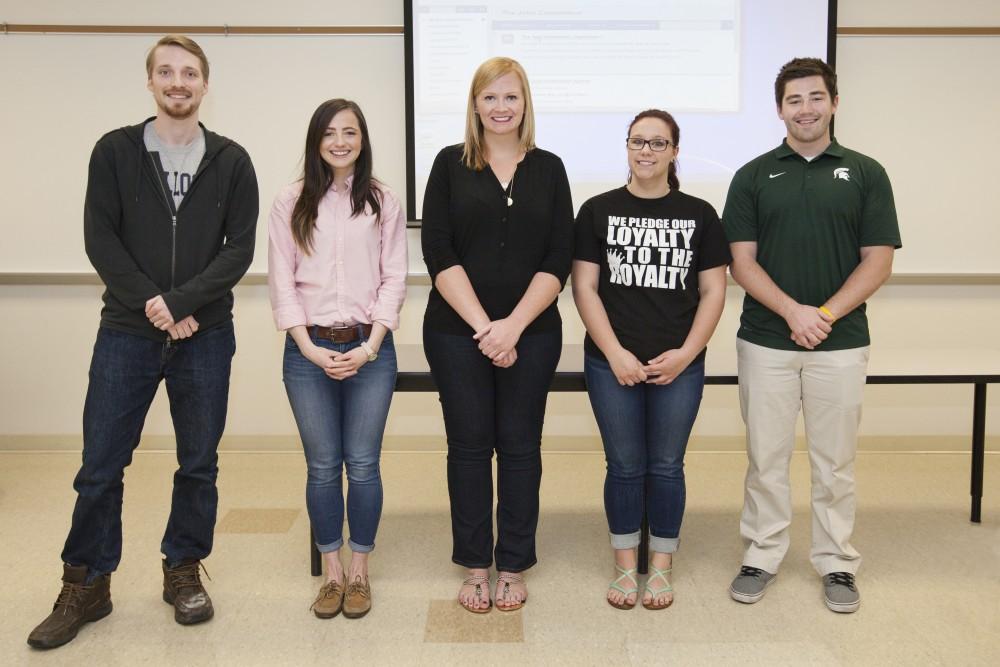New program offers emergency care clinical experience

GVL / Courtesy – GVSU Scribe Academy GVSU Scribe Academy’s first Class of June, 2015
Nov 12, 2015
Students pursuing a career in healthcare are often faced with years of formal education and high tuition rates. Grand Valley State University is currently providing a more affordable alternative for those interested in gaining clinical experience.
In 2015, the GVSU Scribe Academy was designed in partnership with the Office of the Vice Provost for Health to train individuals to assist healthcare providers in local emergency departments (ED).
The program offers free tuition, while students complete 65 pre-clinical hours in classrooms and 40 hours of clinical training in the ED with full-time senior scribes. Students work through emergency care services in Spectrum Health hospitals, including Butterworth Hospital, Blodgett Hospital and soon, the Helen DeVos Children’s Hospital.
The academy began its first cohort on May 1, with graduation in June, as five full-time scribes were originally hired. For the winter of 2015 cohort, 25 applicants will be accepted, starting Dec. 18.
Jeffery Trytko, program director of the Scribe Academy, said the benefit to the university is helping students gain valuable clinical hours working in the ED. Trytko said eventually, students are able to obtain potential part-time positions working independently as scribes.
“Not only do students get clinical hours,” he said, “but they also get a part-time job that is flexible with school schedules. The emergency room is open 24 hours. That allows for more flexibility. Scribes are usually given, on average, two eight-hour shifts a week.”
Elena Ongaro, senior scribe, works in the ED about 35 to 40 hours per week, also training students during the clinical portion of the program. Ongaro said she works with a team of senior scribes collaborating with GVSU, Emergency Care Services and Spectrum Hospitals to optimize the program.
“Working in the emergency department is extremely educational,” she said. “I have found that my medical knowledge has grown tenfold by exposure to the physician’s decision-making process.”
Acquiring a paid healthcare experience, Ongaro said, is the largest benefit as scribe certification can be expensive. In addition, she said scribes assist the physician in documenting patient care in real-time, therefore providing exposure to a variety of illnesses and educational experiences.
“A large variety of illnesses walk through the ED doors,” Ongaro said. “As a scribe, you are with a physician throughout their shift at the bedside, recording their interaction with the patient in the emergency medical record.”
Requirements for applicants include that students must be a sophomore, junior, senior or recent graduate pursuing a career in science or healthcare. Also, students must have a minimum GPA of 2.5 and be able to type approximately 65 to 70 words per minute.
Ongaro said there is a minimum commitment of 18 months required for the program, as it is a year-round position. Only working shifts during summer is not available. She said scribes work a mixture of weekends, weekdays, mornings and nights based on class schedules.
“Our goal is to make physicians as efficient as possible,” Ongaro said. “Scribes work to keep them updated on diagnostic results, help them with various clerical tasks and document the course of the patient’s care.”
For those interested in the GVSU Scribe Academy, applications are available at www.gvsu.edu/scribe.





















